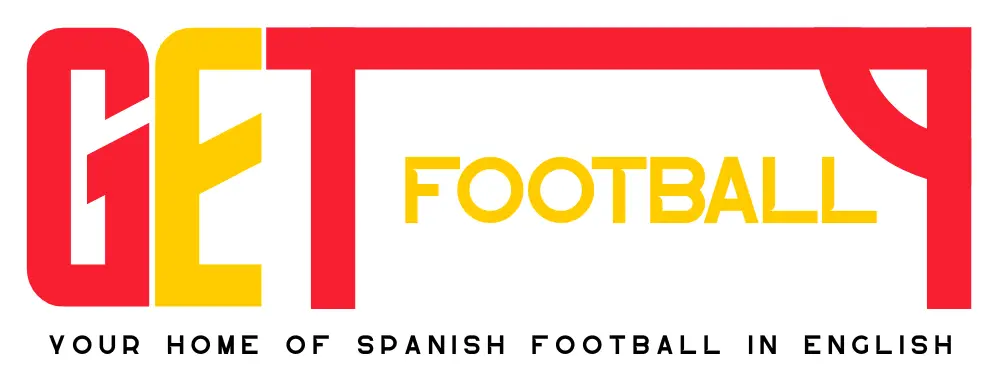This article is taken from Get Football’s new European Football publication, The Modern Footballer. In his dedicated Barcelona column, Adam White compares the sackings of Ernesto Valverde and Bobby Robson. Although more than two decades apart, both raised many of the same questions at Barcelona. Print and digital copies available here: http://bit.ly/TMFIssue1 Check out our social media for a free 20 page sample.
“FOR the worst coach in the world, it’s going really well.” Whistles after 6-0 wins, constant criticism from the press over a lack of identity and his sarcasm aside, Bobby Robson was right. It was going well. The English coach secured a Cup Winners’ Cup triumph, won the Spanish Super Cup and led Barcelona to one of their greatest ever victories – at least in an emotional sense – as they lifted the Copa del Rey at the Bernabeu. The Catalan club’s famous anthem blared over the speakers at the home of their eternal rivals amid wild celebrations. But Robson survived just one season as Barça manager. The problem was obvious – he wasn’t Johan Cruyff.
With Louis Van Gaal hovering and the club’s intention to shuffle Robson upstairs after the 1996/97 campaign a long-standing one, the Englishman’s ousting was public, brash and rather disrespectful. Robson’s success had become irrelevant, it was the method of that success that proved pivotal. Building on his spell as a Barcelona player in the 70’s under the similarly influential Dutch coach Rinus Michels, Cruyff’s playing style proved revolutionary as his ‘Dream Team’ won the club’s first European Cup in 1992. During Cruyff’s eight-year reign as coach, Barcelona’s identity became evermore fiercely entrenched and intrinsic to the club’s ideology. Although Barça were trophy-less for the final two years of Cruyff’s reign, Robson – perceived as old fashioned in Spain – could never stand up to Cruyff’s legend.
Although Robson was regarded as a father figure by many of his players – including Ronaldo Nazário – liked by those at the club and handled himself with dignity throughout, he simply became collateral damage in the Barcelona hierarchy’s desperate search for an ideological successor to Cruyff. Although often at odds personally with Cruyff, Van Gaal’s style was more suited to Barcelona’s identity but, despite claiming the next two league titles – although neither points total came close to the 90 point haul under Robson – further Champions’ League success was not forthcoming. The drought eventually lasted fourteen years and eight further managerial appointments.
More than two decades later, Barcelona found themselves at a similar crossroads. A successful, dignified coach, adored by many of his players but berated for a lack of philosophy by fans and media, unceremoniously and publicly sacked with his team leading La Liga. Ernesto Valverde’s final training session must have been a surreal experience. He, like his players and the rest of the world, knew that Xavi Hernández – the embodiment of the philosophy of Pep Guardiola, Cruyff’s true successor – had refused the chance to replace him. Valverde also knew Netherlands coach Ronald Koeman – iconic scorer of the only goal in the 92 final and Cruyffian disciple – had also said no with Euro 2020 on the horizon. And he knew that third choice Quique Setién was all but confirmed as his successor.
After two disastrous Champions’ League collapses to Roma and Liverpool, the 3-2 Spanish Super Cup semi-final loss (Barça had led 2-1 with ten minutes left) to Atlético Madrid accelerated the club’s plans to replace Valverde next summer. Although he had somewhat miraculously survived the last off-season, Valverde, like Robson, had always been on the edge. He too has long been criticised by more puritanical fans and journalists for not strictly adhering to that intrinsic Cruyffian philosophy despite capturing the last two La Liga titles. Valverde’s main problem? He wasn’t Pep Guardiola.
Nearly twenty three years apart, the dismissals of Valverde and Robson raise the same question. What’s more important; winning or playing well? Despite being a coach who failed with mid-table Real Betis last term, Setién’s style of play has led many a Barcelona traditionalist to champion him for some time. Perhaps illustrating that winning is less important than widespread ire over a lack of recent European success had suggested.
Transversely, despite the Messi-Suárez-Neymar trio hitting form plus the likes of Andrés Iniesta and Sergio Busquests in their prime, Luis Enrique was also painted as a more direct, vertical and pragmatic coach but his first season treble in 2015 bought him time and capital he likely wouldn’t have been afforded otherwise.
Although it may be perfectly understandable for a club like Barcelona to demand both style and success, there has to be some elasticity between the two and some recognition that both can rely on factors besides managerial genius. For example, although their pioneering status is undeniable, Cruyff and Guardiola both enjoyed outstanding generations of players; Koeman, Laudrup, Stoichkov and Guardiola (the player) versus Messi, Iniesta, Piqué and Xavi. Valverde meanwhile has suffered with frustrating returns from three nine figure signings; Ousmane Dembélé, Philippe Coutinho and, to some extent, Antoine Griezmann. Not to mention the decline of Iniesta, Luis Suárez and Busquets. The extent to which Robson’s success (and also, intriguingly, perhaps even his lack of style) is down to translator/assistant coach José Mourinho’s embellishment of his instructions when relaying them to his players is also open to debate.
Although Barcelona’s labyrinthine mesh of political, sporting and ideological motivations beyond the relative status of Cruyff and Guardiola, such as Madrid’s relative European success, contributed to both dismissals to varying degrees, the worst thing that happened to Valverde and, earlier, Robson was still Guardiola and Cruyff. Although Robson boldly stated at his first Barcelona press conference: “I am not afraid to follow him. When the president of the United States leaves, they have to get another president of the United States.” he later wrote that Cruyff still “haunted my early days” at the Nou Camp.
Future Barcelona coaches will feel the same pressure. Although that devotion to style is admirable and inexorably linked to the club, the successes of the likes of Robson and Valverde shouldn’t be so swiftly dismissed in favour of a maniacal search for the next Guardiola or Cruyff. Although many Barça fans celebrated the exit of Valverde, he came closer than they seem to recall to UCL success. A simple square ball from Dembélé to Messi in the final seconds of the first leg of last year’s Champions League semi-final and Barcelona would have gone to Anfield with a 4-0 advantage. Psychologically an insurmountable lead? Maybe. What is for sure is that another fourteen-year wait would be a disaster.
@_Adam_White_










